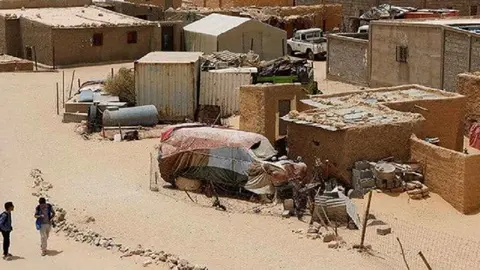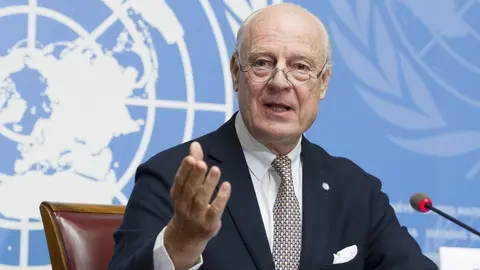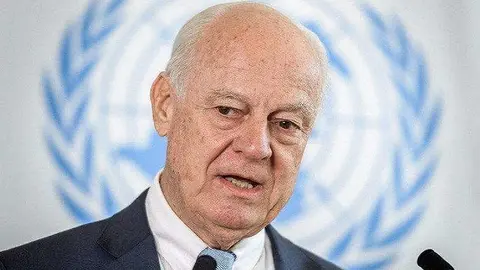US works for political solution to Western Sahara conflict

Joshua Harris, US Deputy Assistant Secretary of State for North Africa, visited the Sahrawi refugee camps in Tindouf, Algeria, to see first-hand the difficult living conditions in the settlements controlled by the Polisario Front with the assistance of the Algerian state and to show US support for a political solution to the conflict in Western Sahara based on United Nations (UN) resolutions.
Joshua Harris himself gave an interview to the Algerian media El Khabar to explain this visit, which was mainly based on conveying the proposal of Joe Biden's American government for a permanent and dignified political solution to the Western Sahara dispute, without mentioning the referendum on independence, which is the proposal being put forward by the Polisario Front, but in keeping with the framework of the United Nations and the process of political dialogue between all the parties involved led by Staffan de Mistura, the UN Secretary General's personal envoy for Western Sahara.
Staffan de Mistura has long been engaged in talks with all parties involved, including Morocco, Algeria, Mauritania and members of the so-called 'Group of Friends', including Spain, the United States, Russia, the United Kingdom and France, in the search for a resolution of the existing problem.

"My purpose in visiting Tindouf was to express the sincerity of my government's commitment to support the United Nations political process to achieve a permanent and dignified political solution in Western Sahara," said Joshua Harris.
The delegation led by Joshua Harris also expressed the clear idea that the success of the political process for peace and a solution to the Saharawi conflict depends on a series of conditions, including a ceasefire in the region. Thus, the main objective of the visit was to get the Polisario Front to agree to a military ceasefire.
A resolution to the Western Sahara conflict is still awaited, although it is unlikely to come before the end of Joe Biden's presidential term, as the problem has been entrenched for more than four decades since Spain left the territory to end the colonial era.
"This was my first visit and it gave me a very direct opportunity to understand and see the situation on the ground and to consult, including with Polisario Front Secretary General Brahim Ghali, on the importance of moving the UN political process forward," explained the US Deputy Assistant Secretary of State for North Africa.

Joe Biden's government maintains the roadmap established by Donald Trump's previous administration, which recognised the Moroccan status of the Sahara in December 2020, within the negotiations established in the Middle East with the Abraham Accords, by which several Arab countries established diplomatic relations with Israel with the aim of pacifying the region and promoting greater economic and social development.
Morocco considers Western Sahara to be its own territory within the so-called southern provinces and proposes a formula of broad autonomy for the territory under Moroccan sovereignty, granting the Saharawis significant self-government in various areas, reserving security and foreign policy powers for the Moroccan state. All of this would respect the postulates of the UN.
The North African country's proposal has received significant international support, including from the United States, Israel, the United Arab Emirates, Germany and Spain itself. This has been an important boost for Moroccan diplomacy.
Meanwhile, the Polisario Front, with the backing of Algeria, proposes holding a referendum on independence for the Sahrawi people, which has less international support and is difficult to implement on the ground, as various analysts have pointed out.
Precisely, the Polisario Front and Algeria are responsible for the situation of the Saharawi refugees in the Tindouf camps in Algeria, and in response to this, various organisations such as the Movement Saharawi for Peace, the Fórum Canario Saharaui and Africa Watch have accused the Polisario and Algerian authorities of committing systematic abuses and violations of the rights of the refugees in these settlements.
America Coordinator: José Antonio Sierra.











